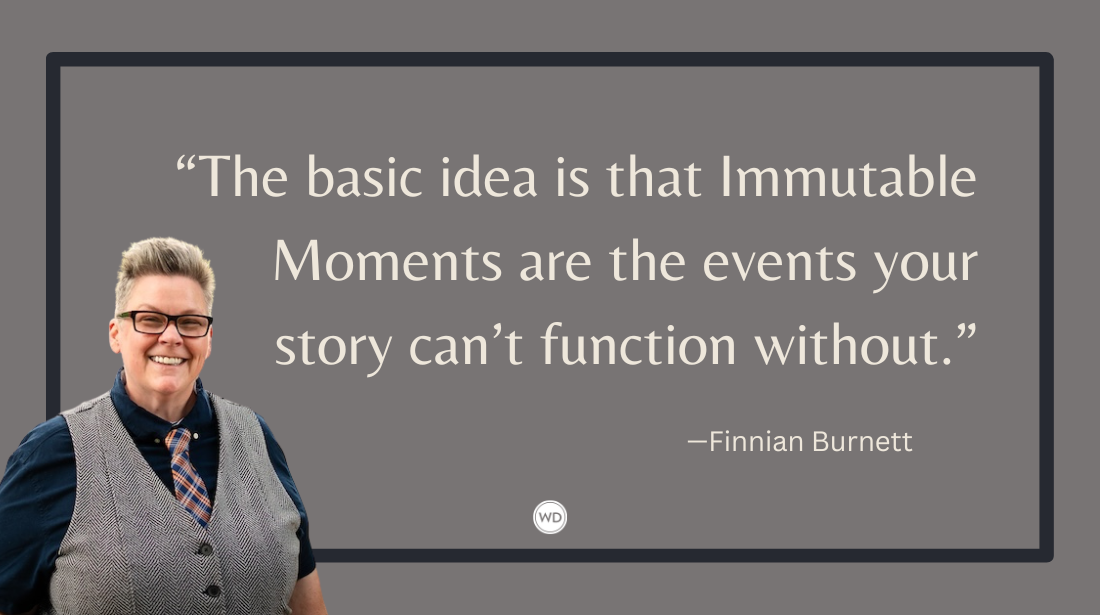4 Tips for Writing about Family Grudges
Author Samantha Downing discusses the techniques she used when writing her literary novel He Started It, which focuses on family secrets, old grudges, and lots of scores to settle.
My novel He Started It is about three adult siblings—and two spouses—who have to go on a road trip across the country in order to collect their grandfather’s inheritance. Along the way, they have to deal with family secrets, old grudges, and lots of scores to settle. These can be tricky to write about for anyone, especially siblings! A few things I learned:
1. Don’t Write About Real Family Grudges
This should go without saying, but I’m saying it anyway. Even if you’ve had the most dramatic and thrilling events in your family, it’s not cool to write about them. No one enjoys being called out in public, especially if they’re in the wrong. And is it really worth creating a problem with your family? Ask yourself that before you write it.
2. Definitely Write about Real Family Grudges
What’s that? Did I just contradict the first rule? Absolutely. Using real family grudges as inspiration can be a good idea—assuming the family members involved are on board. For example, my brother somehow makes his way into every book I write. In He Started It, his personality was the inspiration for Eddie, the only male sibling in the Morgan family. Eddie is charismatic and outgoing, the kind of guy who makes friends wherever he goes. So is my brother.
Why did I do it? Because we’ve always had a competitive sibling rivalry (and a lot of grudges), and we have the kind of relationship where I can do this. He knows about it, and he thinks it’s hilarious. So in this case, it’s an exception. If you have someone like that in your family, go ahead and make their day!
IndieBound | Bookshop | Amazon
[WD uses affiliate links.]
3. If You Do Write About Something Real … Disguise it Well
When using a real family grudge as inspiration but you think someone might get hurt or insulted, change all the identifying details. And I mean everything. The character descriptions, the locations, the words used in conversations. The idea is to use the root of the grudge, not the details.
For example, say the grudge against a grandparent for always giving a sibling better gifts, more money, or more attention. The root here is preferential treatment. It's your book, that can mean someone (not a grandparent) treated a sibling better than your protagonist. That’s it. Everything else needs to be different.
Another example: Your parents divorced when you were a kid and gave you and your siblings a big talk about how it wasn’t you, it wasn’t your fault, and of course they both still loved you and respected each other. Maybe it sounded better than it played out in reality. Perhaps one insulted the other in front of you, putting you in the middle and making you feel like you had pick sides. You and your siblings talked about this, all agreeing the situation was horrible and the divorce was worse than expected. The root is the betrayal of a parent saying one thing but doing another. This can apply to a multitude of scenarios and is not exclusive to divorce.
4. Use the Emotion
Remember how a dispute with a family member feels? The anger, the hurt, the disbelief. How did you express it? Did you cry, scream, sulk, slam doors? Did you confront the person who did this, or did you keep it all inside? This is the part that’s important for a writer, to be able to express emotion through how a character acts.
Use your own reactions but change what the characters are reacting to. If you had a sibling that constantly “borrowed” your things without asking and you reacted by borrowing things right back, you can use that. Turnabout is always fair play—in thrillers, at least. But in any genre, an action like that says a lot about a character by showing, not telling.
These are my tips, and I hope they’re helpful! The truth is, as writers we often draw upon our experiences and write about them—consciously or subconsciously. So did I use my own family in any of the examples I gave in this article? I’ll never tell. And if I did, I changed the details just enough to give myself plausible deniability. It’s not just for politicians.
Samantha Downing is the USA Today and Sunday Times bestselling author of My Lovely Wife, which has been nominated for an Edgar award. Her next book, He Started It, was recently released. She currently lives and works in New Orleans. Learn more at www.samanthadowning.com.








